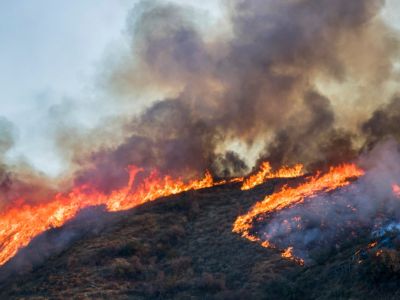Wildfire Smoke in Gardens
Any gardener whose life was disrupted by wildfires knows that there was wildfire smoke in gardens too. Humans can wear an N-95 mask to go out or, if they are lucky, stay in the house with a HEPA air filter cleaning that smoke out of the air. Garden plants have neither of these options and may be exposed to smoke garden damage. That raises the very real question: how does smoke affect gardens? Implicit in that question are several others: Can smoke hurt plants? Can you help them? Can you eat the fruits and vegetables that were growing during the wildfires? While wildfire smoke in gardens does affect plants, it doesn’t necessarily hurt them.
Smoke Garden Damage
Perhaps the most obvious evidence of smoke damaged plants involves ash. In some places, including California, ash fell like snow in areas near the wildfires and even in parts of the state that were farther away. All that white ash – does it result in smoke damaged plants? The quick answer is no. As long as you aren’t seeing a thick, smothering blanket of ash, the wood ash might actually help your plants. In fact, many gardeners amend their soil with wood ash, which provides potassium, phosphorous, calcium, and trace minerals. It works especially well for acid soil since it reduces acidity at the same time. On the other hand, you’re definitely going to want to wash any garden produce down well before eating it, perhaps two or three times for good measure. Use a weak mix of vinegar and water. Realistically, smoke and ash aren’t likely to penetrate deep into the fruit or vegetable. Another option for those worried about smoke damaged plants is peeling fruits or removing the outer leaves of greens. If the crops still smell like smoke after rinsing and/or peeling, however, don’t eat them. Why take the risk?
Helping Gardens Avoid Smoke Damage
There are a few steps you can take to aid your plants exposed to wildfire smoke. First, while the smoke and ash are in the air, water the garden plants well if you can do it without putting yourself in danger. At least once a week, rinse off the leaves with the hose, both from the top and underneath, to clean off particles. It’s also good to protect your soil from chemicals that may be drifting with the smoke. A layer of mulch will do the trick, but so will cover crops. If your plants are extremely sensitive, you can use a frost barrier to keep those plant pores open.
